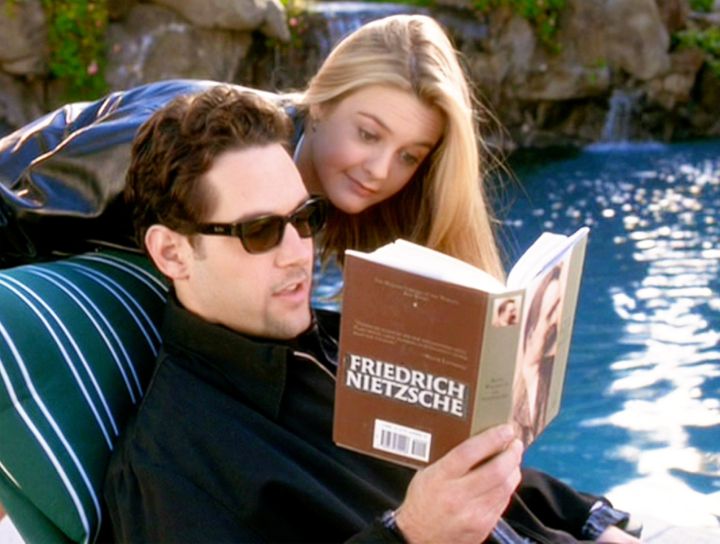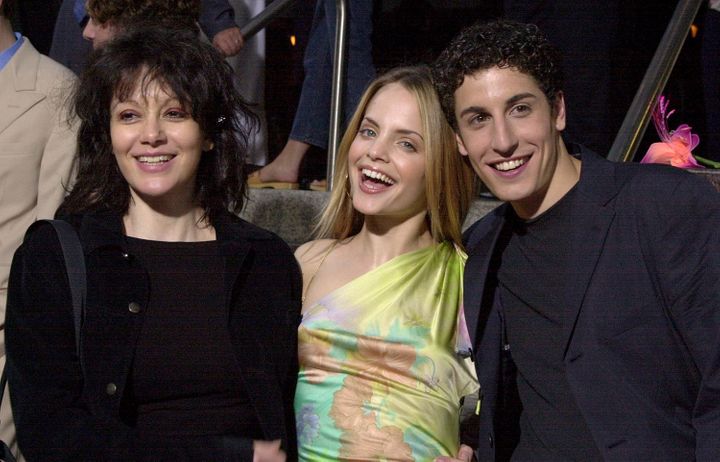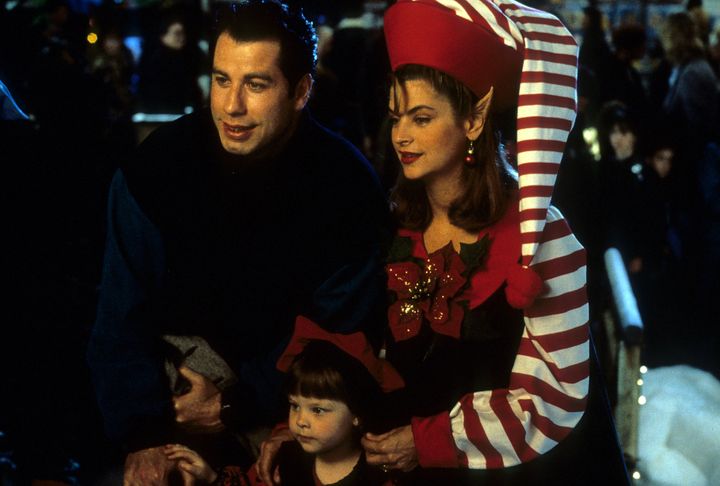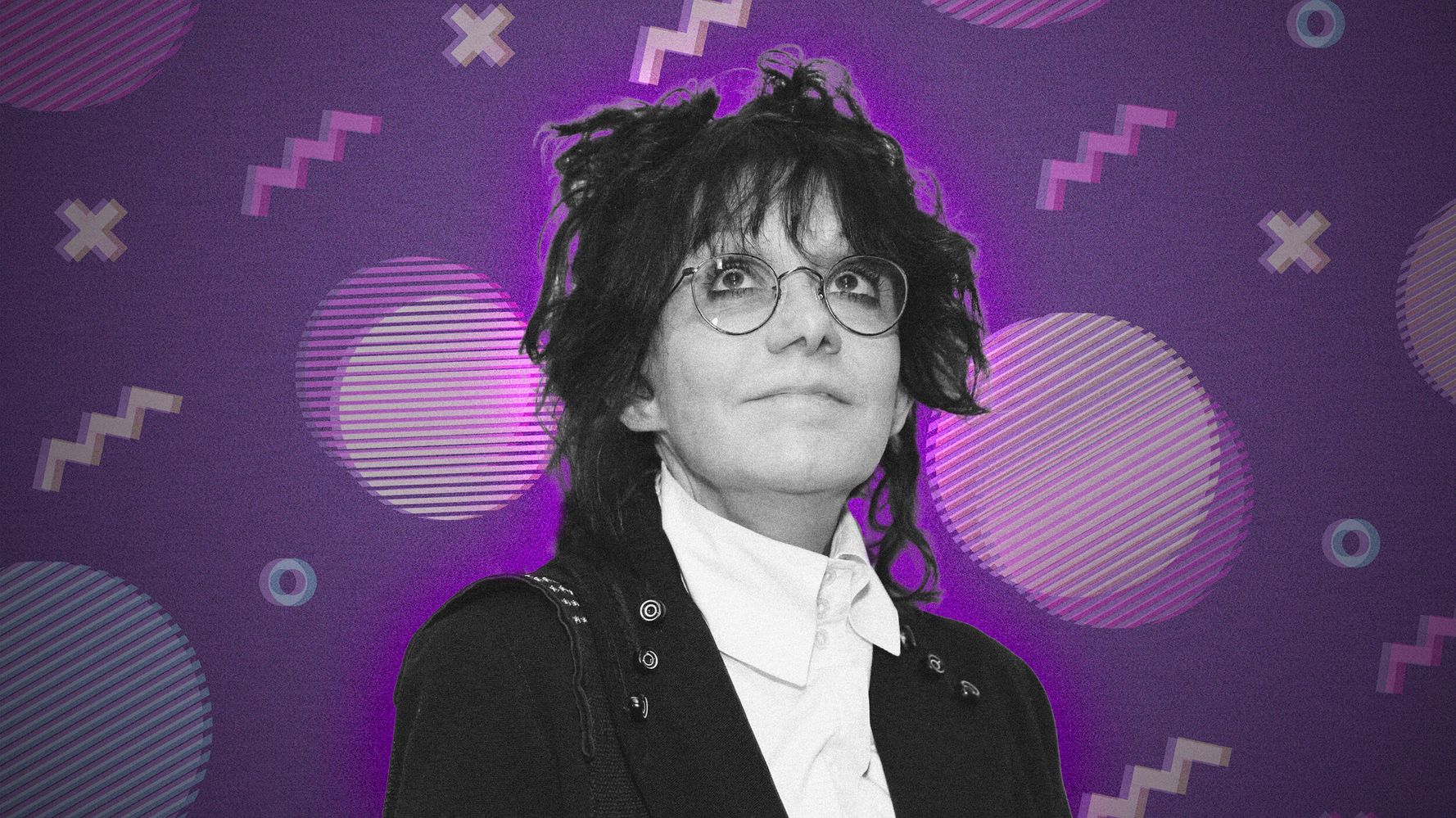[ad_1]
From 1982 to roughly 1996, Amy Heckerling had the sort of career that comedy directors dream of. One of the few female filmmakers employed in Hollywood, she made “Fast Times at Ridgemont High,” “Johnny Dangerously,” “National Lampoon’s European Vacation,” “Look Who’s Talking” and her now-25-year-old masterpiece “Clueless.” Three of those movies spawned primetime spinoff series, which Heckerling also worked on. Altogether, that winning streak should have granted her the run of the industry.
Instead, Heckerling found herself on the receiving end of studios’ unforgiving machinations. Her next movie, the 2000 college rom-com “Loser” starring Jason Biggs and Mena Suvari, faced the jurisdiction of Columbia Pictures’ marketing department, which reportedly ordered the film to be sanitized to avoid an R rating because PG-13 comedies performed better at the box office. That’s nothing compared to the drama behind 2007’s “I Could Never Be Your Woman.” Paramount Pictures acquired and later shelved the script because Heckerling’s lead actress, Michelle Pfeiffer, was supposedly no longer profitable in her 40s. An up-and-coming, MGM-partnered indie label picked up the project, but its French founder turned out to be a fraud who didn’t understand the business. The film went straight to DVD. Heckerling’s most recent movie, a 2012 vampire farce that reunited her with “Clueless” star Alicia Silverstone, opened in one theater and grossed a total $3,361.
Plenty of directors experience ups and downs, but it’s hard to imagine a man getting tossed aside like a deflated balloon after a stint as productive as early-era Heckerling. Television work has sustained her, including episodes of “The Office,” “Gossip Girl,” “The Carrie Diaries” and “Red Oaks,” but will she ever make a movie again? She’s not sure.
A Bronx-born wit with a warm laugh, Heckerling tries not to be bitter. Who could blame her if she were? With “Clueless” celebrating its 25th anniversary on July 19 and releasing a new Blu-ray edition on July 21, I had a quick phone chat with the 66-year-old Heckerling to find out what she makes of the fate Hollywood has dealt her.
Do you think there is possibly a question about “Clueless” that you have not already been asked a dozen times or more?
Let’s see. Are you going to ask me, like, why did it last? Or does the [Cher and Josh] relationship seem incestuous?
No, I want to avoid those things. One aspect of the movie that I was thinking about when I rewatched it last week is the books that various characters read or reference, the most well-known of which is Josh reading Nietzsche by the pool. I assume your intent there was to satirize the performatively intellectual college student who comes home and wants to show off how sophisticated and enlightened he’s become.
Well, there were all these different movements in the ’90s, and it wasn’t like everybody was wearing shiny clothes and trying to get into a certain disco. There were a lot of coffee shops and places where people would go and get cappuccinos and read. It would be decorated to look like a library or a den with a lot of books, and I thought, “I like this environment.” Of course there’s a phoniness to everything, but it’s this part of Nietzsche that has this very Zarathustra quality. It’s kind of like a road map for earnest college students trying to figure out how to become a better person. Even though a lot of Nietzsche could be kind of bad or anti-Semitic — there’s arguments over whether he really was or not, but he was friends with [openly anti-Semitic composer Richard] Wagner — it’s the idea that first you’re the beast of burden that takes on everything and tries to learn and works hard, and then you’re the lion that says no and has to break down what was before. And then there’s the baby — that’s the new man. I feel like that was kind of also in “2001” with [Stanley] Kubrick.
In college, you’re exposed to all these different philosophies. You could be seeking fanatical religion, but you could also be seeking a map to becoming something better. Whether or not Nietzsche provides that is tough to say, but that one particular part seems to be something that a young person might grab onto and play with for a while.

And it’s an interesting contrast to Christian reading “Junkie” while sitting in a high school classroom, which seems like a more teenage version of what you’re saying. “Junkie” would be a cool, edgy, bad-boy book to read in the middle of this ritzy campus.
Yeah, but also it’s the Beats. There was also a resurgence of 1950s cool, and there was also the swing-dancing stuff. There were different pockets of stuff coming up all over the place, so a smart young person could try out a lot of different things. And certainly to be reading the Beats, you could read about how [William S. Burroughs] got what drug and what street they were on, all of that. It’s like, “I could read this, I understand this. It makes sense to me.”
It’s aspirational on some weird level for American teenagers, or was at one point, I guess.
Yeah, and how do you break away from what there was before and what’s hip and what’s cool? What were those guys doing?
Shortly before you started working on “Clueless,” you had a movie in development at Disney. You’ve said the studio called it “too smart” and dropped the project. What was it?
There was a French movie that I liked certain things in that I wanted to play around with. It was called “My American Uncle.” It was two guys wanting the same job, and a woman. You kept going back and forth between these characters. You saw rats in a cage doing these experiments that they did with behaviorism, and then you saw that people were doing exactly what rats would be doing, except in people-world. I spent a lot of time studying all the different experiments and then figuring out a plot that would have the three characters interwoven, and then how do you get better from your neuroses and how do you get worse? And then, how do you make a plot that could do that while cutting back and forth? I really, really liked it, and they said, “Nah, this is too smart.” I was like, “Aw, it will be fun-looking, it’ll be cute.”
At that point in your career and in your life, how did you receive a setback like that? This thing that you’d poured yourself into just fell by the wayside.
Well, it wasn’t the first time and it won’t be the last time. You get down and you get up again.

After “Clueless” opened and became successful, were you flooded with offers for more teen movies?
Well, that was my sweet spot anyway because of “Fast Times.” But how many times do you want to see girls lose their virginities? It’s like, enough. And also just because somebody is 16 and is telling you what designer they’re wearing, that’s not what matters to me. Also, I like to write, although the whole time I’m making it, I’m going, “I wonder what [Martin] Scorsese would do if he had my material. I really wish I had a genius director doing this.”
Have you ever come close to a scenario where another director would make one of your scripts like that?
No. The only time is when I was producing in TV. We would write a lot of stuff that other people would direct, and that was actually fun for the most part.
You get to birth it and then see how somebody else would raise it, if you will.
Yeah. Of course you like to raise your own kid, but while I’m directing, I go, “Oh, if only I had a better writer.” And while you’re writing, you go, “I wish I had a better director.”
When your career is written and spoken about, people say you deserve to rank alongside the great comedy directors, like Billy Wilder and Harold Ramis. How does that armchair commentary about the direction your career should have taken after “Clueless” feel to you 25 years later?
I was close to Harold. He’s an entirely different animal. But Billy Wilder is one of my heroes. Very few people rank up there with him. “Ace in the Hole”? “The Apartment”? Jesus.
But in the post-“Clueless” years, it seems like you got a raw deal from Hollywood considering how many big-screen hits you’d written and/or directed. Broadly speaking, do you feel that way?
If I went around feeling that way, I would just be such a bitter little rotten person, which I pretty much am. But you know, you’ve got to put your hands over your ears and eyes and not listen to the terrorist chatter all around you.

Your accomplishments certainly outweigh your setbacks in the public eye, but what does it feel like to associate an entire piece of work, whether it’s “European Vacation” or “I Could Never Be Your Woman” or maybe to a lesser degree “Loser,” with an unhappy period in your life?
That’s what’s fun about film — Hollywood especially: You’re always getting your report card and then you’ve always got to bring it home to your father, and he doesn’t want to hear that the teacher wasn’t being fair. What are you going to do? You can’t hand out little flyers to everybody in the audience going, “Well, you see, this is who I wanted in it and this is who the studio made me use. I tried to change this, and then they told me at the last minute that I couldn’t have this or that.” Nobody cares. Tough luck. Snap out of it.
If only you could become Cher, bribing them to raise your grade on your report card.
Well, I can’t do that. I knew a girl that would get her report card and immediately figure out what she was going to say to the different teachers, and she did it. That blew my mind. Like, who told you you could do something like that?
You have said that Paramount shelved “I Could Never Be Your Woman” because they didn’t think a female protagonist over 40 would sell, which sounds a lot like what Fox told you about a teen-girl protagonist when “Clueless” was in development there briefly. But in the last few years, we’ve slowly started to see Hollywood rethink the archaic notions about what is bankable. Does that give you motivation to try to make whatever it is that’s on your mind right now, knowing that some of those attitudes are changing?
They say they’ve changed so many times. It’s like them telling you what things are carcinogenic and healthy, and they switch it every year. It’s Hollywood. It’s like, “Yeah, yeah, now we’re looking for people of color, and now we’re looking for females. Now we’re looking for older people because this or that did well,” or, “We’re going to show that we’re inclusive.” You can’t count on that shit.
Will you make another movie?
I don’t know. If I said something, the evil eye would hear and make it go away.
Do you have something in development at the moment?
I can’t say. See, I gotta go pooh-pooh-pooh. And besides, who the fuck knows if people will ever go in movie theaters anymore? What streaming service will last or not last? God willing, [COVID-19] will seem like such a small little blip on the radar in the future, but who the fuck knows?
This interview has been edited for clarity and length.
Calling all HuffPost superfans!
Sign up for membership to become a founding member and help shape HuffPost’s next chapter
[ad_2]
Source link

